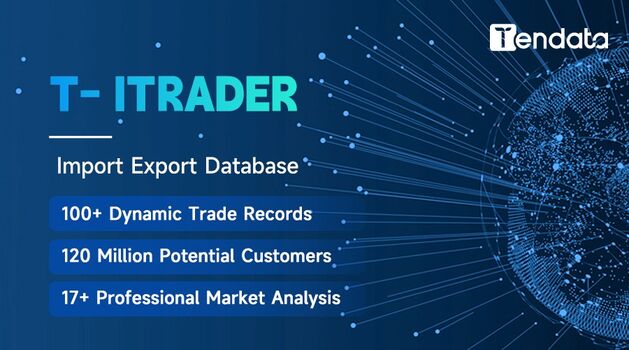 Import News
Import News
 2023-07-24
2023-07-24
The Philippines, an archipelago in Southeast Asia, is known for its vibrant economy and growing import business. As the country's economy continues to expand, there is an increasing demand for imported goods, including vehicles like cars. If you are planning to import a car into the Philippines, it is essential to understand the process of calculating car import taxes. In this article, Tendata will explore the steps involved in determining car import taxes in the Philippines and shed light on the country's current import status.
>>>Improve Your Import Export Business With Tendata<<<

The Philippines' Import Business:
The Philippines is a net importer, meaning that it imports more goods than it exports. The country's top imports include electronic products, machinery and equipment, mineral fuels, vehicles, and iron and steel products. As the Philippines' economy grows, there is a rising demand for vehicles, making Philippines imports an essential aspect of the country's import business.
Calculating Car Import Tax in the Philippines:
When importing a car into the Philippines, various taxes and duties apply. The key components to consider while calculating car import taxes are:
a. Customs Duty:
Customs duty is a tax imposed on imported goods and is typically calculated based on the car's dutiable value. The dutiable value is determined based on the car's cost, insurance, and freight (CIF) value, which includes the vehicle's price, insurance costs, and shipping expenses.
b. Value-Added Tax (VAT):
VAT is another significant component of car import taxes in the Philippines. It is a consumption tax levied on the car's CIF value, plus the customs duty amount. The current VAT rate in the Philippines is 12%.
c. Excise Tax:
The Philippines imposes an excise tax on imported cars, which is based on the car's net retail price. The net retail price is determined using a schedule provided by the Bureau of Internal Revenue (BIR), depending on the car's classification, brand, and model year.
d. Other Taxes and Fees:
In addition to the above taxes, there may be other fees, such as the Documentary Stamp Tax (DST) and local government taxes, which vary depending on the car's value and the importing location.
>>>Online Customer Service Consultation<<<
Importation Process and Requirements:
Before importing a car into the Philippines, importers need to comply with specific requirements set by the Bureau of Customs (BOC). These requirements include securing an Import Clearance Certificate (ICC) from the Department of Trade and Industry (DTI) and filing the necessary customs documents, such as the Goods Declaration (GD) and Commercial Invoice.
The Role of Importers and Brokers:
Importing a car into the Philippines can be a complex process, involving various taxes, regulations, and paperwork. Importers often seek the assistance of licensed customs brokers who are knowledgeable about the customs laws and can facilitate the smooth importation of vehicles.
Government Policies and Incentives:
The Philippine government may introduce policies or incentives aimed at promoting specific types of car imports, such as electric vehicles or vehicles with lower emissions. These policies could include tax breaks or reduced import duties for eligible vehicles.
Conclusion:
Importing a car into the Philippines requires a thorough understanding of the tax calculation process and adherence to customs regulations. As the Philippines continues to develop economically, the demand for imported cars is expected to grow, making it essential for importers to be well-informed about the country's import tax system. Seeking professional advice from customs brokers and staying updated on government policies and incentives can facilitate a successful car importation process.
Tendata iTrader boasts customs data from over 80 countries, commercial data from 198 countries, and a database of 130 million plus buyers. Tendata iTrader processes a rolling 10 billion daily trade data, enabling swift and intelligent filtration of contact details for 121 million executives and decision-makers, including emails, phone numbers, social media, and more. Additionally, Tendata iTrader can simultaneously display company directories, product images, and website links, while offering 17 visual reports. This assists foreign trade enterprises in pinpointing and analyzing markets accurately, helping you swiftly identify the precise purchasers and suppliers you need. (>>>Click to Apply for Free Trial<<<)

Step One: One-Click Search for Your Global Prospects
Tendata iTrader seamlessly integrates customs data from 80+ countries, commercial data from 198 countries and regions, and internet data from 141 countries. A single search yields global target clients in 0.01 seconds without waiting. (>>>Click to Find Global Buyers<<<)
Step Two: Rapid Analysis to Identify Your Target Clients
The comprehensive customer information provided by Tendata iTrader assists us in analyzing detailed buyer information and furnishing extensive personal contact details of executives. This information is a highly valuable sales asset. (>>>Click to Analyze Your Target Clients<<<)
Category
Leave Message for Demo Request or Questions


 T-info
T-info T-discovery
T-discovery

 My
Tendata
My
Tendata Market Analysis
Market Analysis Customer
Development
Customer
Development Competitor
Monitoring
Competitor
Monitoring Customer Relationship
Customer Relationship





































































































































